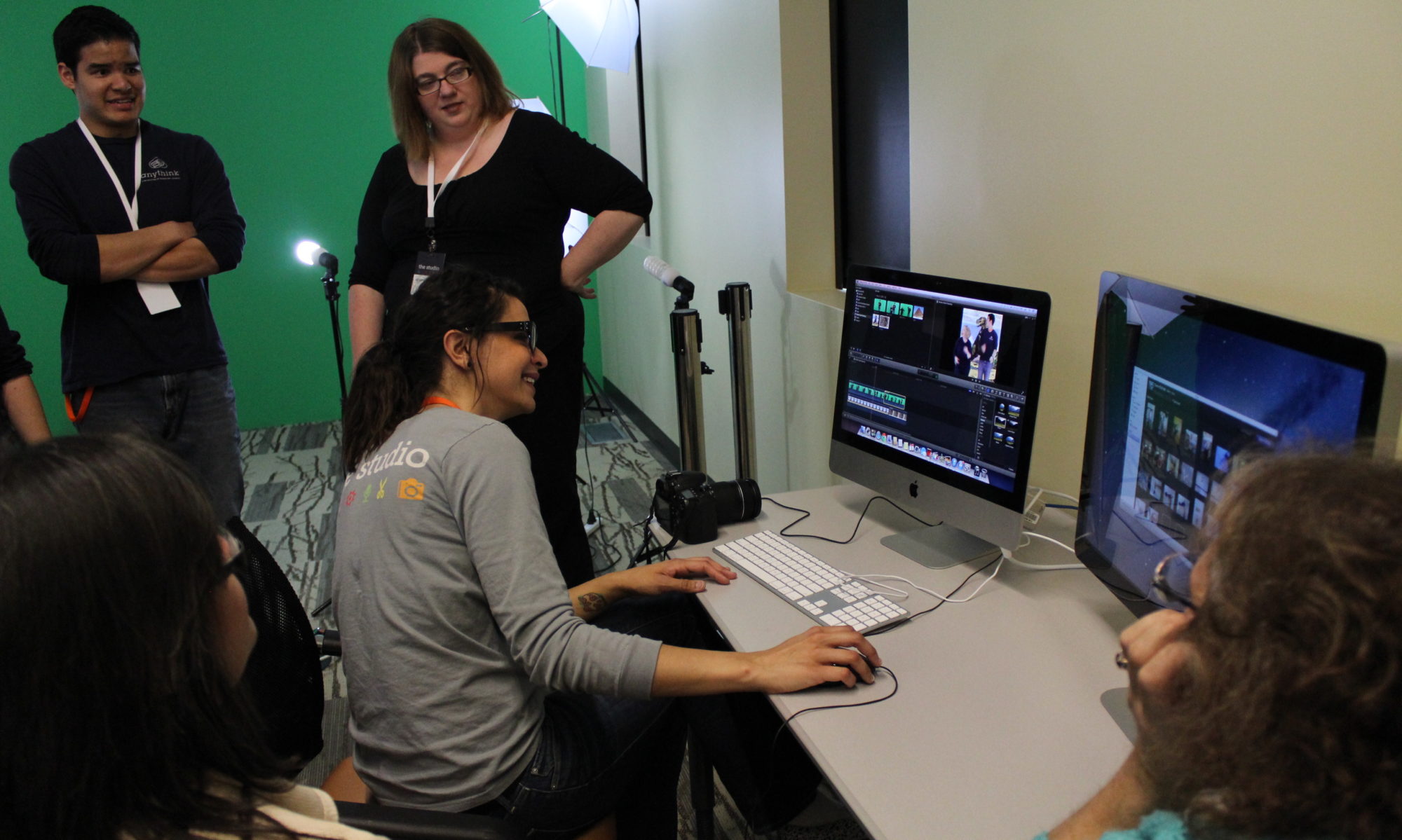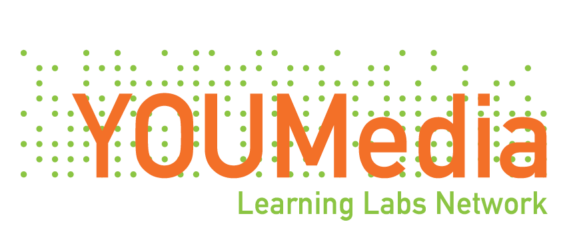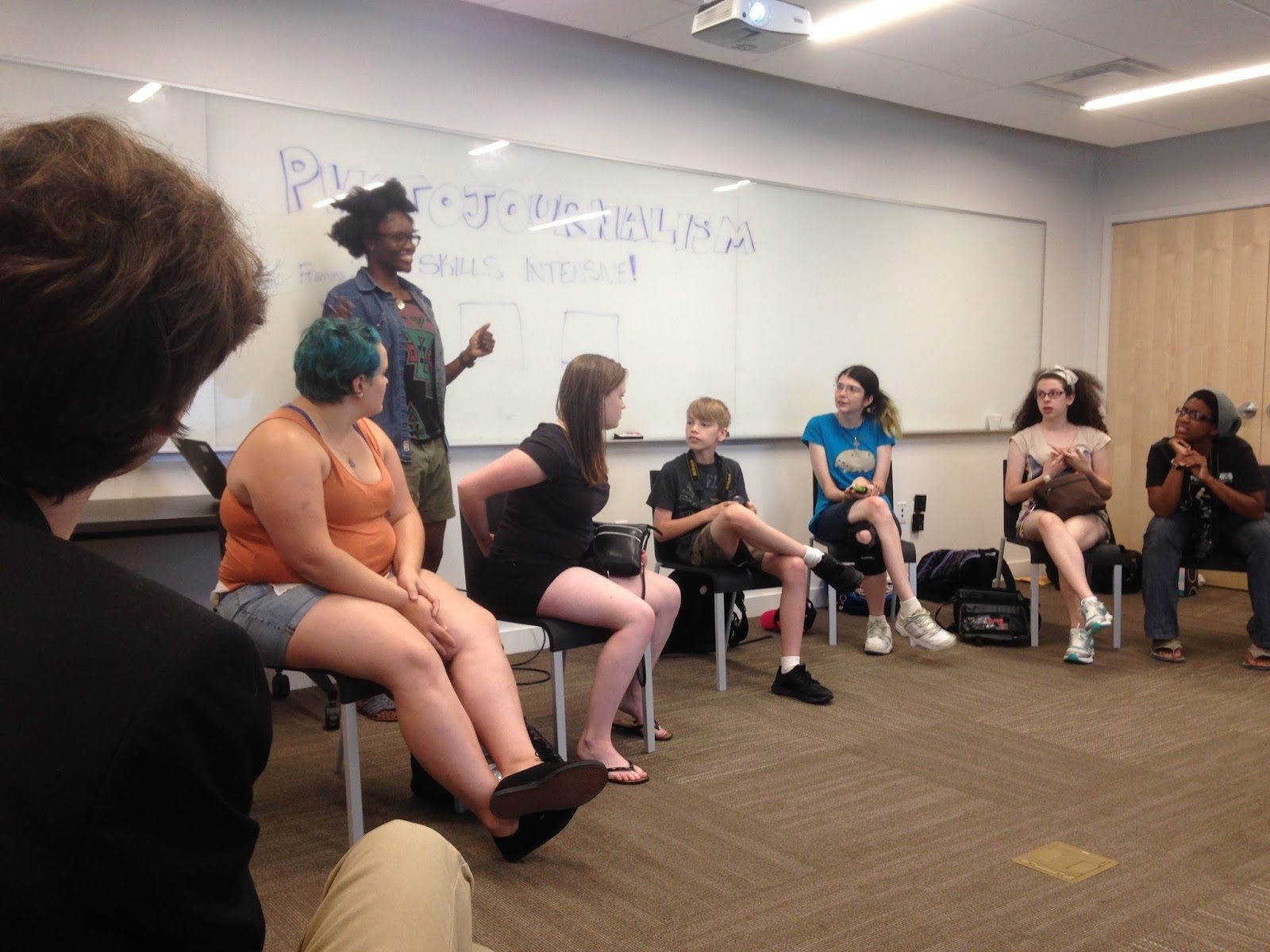By Corey Wittig of The Labs @ Carnegie Library of Pittsburgh
Library programming with partner organizations tends to skim the surface of learning, but what if we leveraged partnerships to help youth in maker programs reach the geeking out stage of HOMAGO? The Labs @ Carnegie Library of Pittsburgh has been creating a structure for these types of partnerships. How do we organize thematic program series geared toward deeper learning? How do we develop templates for documents that will help staff manage the partnerships necessary for offering such learning opportunities?
Traditionally, partner programming at libraries is short-term. A presenter or partner organization might stop by your library to present one program, but a formalized structure for ongoing collaboration is rare. The Labs @ Carnegie Library of Pittsburgh has been seeking to change this fact by developing programs that are collaboratively planned with partners based on local youth interest. These programs aim to facilitate deeper exploration (or “geeking out” opportunities) on the topic of interest.
As we expand our maker-centered learning programming to new locations (and create supports in the original sites for staff learning and youth leadership) the important role that community partners play in providing informal learning in our library spaces becomes increasingly clear. While we seek to deepen opportunities for professional development for all staff, we realize that our colleagues can never be expected to know how or provide all services.
A more reasonable expectation is to guide patrons toward their goals, including making quality connections to suitable community partners and helping them start down a personalized learning pathway. This is why CLP recently invited key program partners (local youth-serving organizations like 1Hood Media and the YMCA Lighthouse Project) as well as local artists and professionals working in relevant fields to co-lead the planning and facilitation of week-long programs known as The Labs Summer Skills Intensives.
These programs were designed as “deep dives” into topics of interest to teens at each neighborhood library–Monday-Friday, four hours a day, working on one big project. This structure is a marked difference from our usual approach where the weekly workshops have aimed to ping-pong between topics in order to engage youth with a variety of interests. While these facilitated “messing around” opportunities are not without value we realized that youth who have been engaged in the program for a while needed a trajectory toward deeper learning in order to continue their growth within the space.
The best way to provide this was to leverage the strong relationship between Teen Specialists, Labs mentors, and local youth in order to identify a topic of interest for programming. For staff engaged with youth, a picture soon emerges of youth interest among the teen cohort at each library allowing us to zero in on the right community partner for the job. Workshop topics were decided upon through the following formula: studying successful past workshops at that location on that topic, availability of partners with that specialty, conversations with the location Teen Staff and Library Services Manager (LSM — the CLP term for branch manager), and conversations with the youth themselves. The following topics and partners were chosen for our five weekly Labs sites:
Labs Summer Skills Intensives
| Location | Topic | Partner |
| CLP – Allegheny | Music Production | The Lighthouse Project |
| CLP – Beechview | Photojournalism | Njaimeh Njie (local photographer) |
| CLP – East Liberty | Songwriting | 1Hood Media |
| CLP – Hazelwood | Street Art | Unaffiliated community artists |
| CLP – Main | Landscape Painting | Labs mentor and her friend a fellow painter and youth educator |
For instance, youth at the CLP – Allegheny location on Pittsburgh’s northside have consistently identified as aspiring musicians since the launch of The Labs at that library in 2012. That’s why Jesse Landis-Eigsti, Labs mentor, worked with his fellow Teen Specialists at that location to develop a partnership with local musicians. They soon found the perfect partner in the The Lighthouse Project–a well-regarded program housed, until recently, at Westinghouse High School and currently transitioning to a state of the art facility at the Homewood-Brushton YMCA. Leadership from The Lighthouse Project sat down with library staff to work out a Memorandum of Understanding (MOU) outlining the roles of the library and program partner in developing, promoting, and facilitating programming. This document, perhaps more than any other document or system created for The Labs Summer Skills Intensives, led to the success we saw in the summer’s workshops.
What’s so great about an MOU? Unlike a contract, a more or less one-sided document, an MOU compels both parties to communicate clearly their capabilities, needs, and desires. It also allows the partners to identify their strengths and weaknesses in order to make the most of the partnership. The library has the space and the kids, but not much expertise in music recording among staff. We focus on knowing a little about a lot of things, so we do well when we tap a partner like the Lighthouse Project, who focuses on one particular subject. Knowing when to bring in outside help is one of the keys to successful maker programming.
The Lighthouse Project has the credibility when it comes to music programming while the Library has established relationships with kids. As long as we use the MOU to properly outline each organization’s role we should be in good shape with both organization’s missions being addressed through programming. Even if something goes awry we have the MOU to point to to help us get back on track.
Facilitating the establishment of this kind of programming has been a major coup for The Labs. As we expand programming to more libraries (with the goal to support concentrated maker programming with Learning Labs at all locations by 2020) it’s important that we explore new ways of supporting learning in our communities. The Labs Summer Skills Intensives are a model for deepening the learning goals in our programs while making sure not to add undue pressure to staff when they aren’t necessarily the most well-suited to deliver specific programming.
We saw amazing work from teens in The Labs Summer Skills Intensives this year, proving that there is interest among youth in a programmatic deep-dive when it’s tied to their interests and provided by knowledgeable educators with real cred. Maybe even more importantly, a system has been established for planning and supporting this programming in the future–something that can be shared with staff as we move ahead and expand the reach of The Labs.
Related Resources:
The Labs Summer Intensive: Photojournalism blog – A teen-designed blog featuring work from the Summer 2016 photojournalism project at CLP – Beechview focused on chronicling a neighborhood in transition
Draft MOU – A template for our Memorandum of Understanding to be used when planning partner programming


